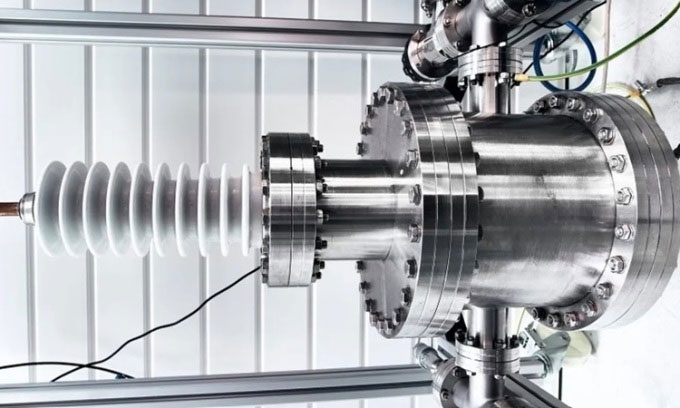A startup in the UK introduces advanced technology capable of transforming cancer diagnosis and treatment.

First MSF Reactor. (Photo: Astral Systems).
Astral Systems, a company established by the University of Bristol, has introduced a unique Multi-State Fusion Reactor (MSF), designed to produce isotopes necessary for cancer radiotherapy and diagnostic imaging, according to a report by Interesting Engineering on November 28. These isotopes are radioactive substances used in medicine for diagnostic and therapeutic purposes.
According to the company’s announcement, they play a crucial role in targeted therapy by effectively destroying cancer cells during radiation treatment. Additionally, they can serve as “radiotracers” in the body, facilitating disease detection through imaging and providing information to doctors about the structure and function of internal organs and tissues.
Astral Systems plans to manufacture small fusion reactors that can be installed in radiotherapy facilities not only in the UK but around the world. By installing smaller-scale reactors, they aim to minimize the risks associated with reliance on a few large reactors, ensuring a continuous and reliable source of medical isotope production.
“Our system is developed much faster and can produce isotopes on a smaller scale than alternative technologies. This means medical isotopes can be generated close to or within hospitals without the need for international nuclear facilities, thereby reducing wait times and healthcare costs while improving patient care quality,” shared Talmon Firestone, co-founder and CEO of Astral Systems.
In 2021, the University of Bristol collaborated with the UK Science and Technology Facilities Council (STFC) to provide research funding of nearly $1.3 million to optimize and commercialize MSF reactor technology in a project named MicroNOVA. If everything goes as planned, this technology will usher in a new era in cancer treatment.




















































